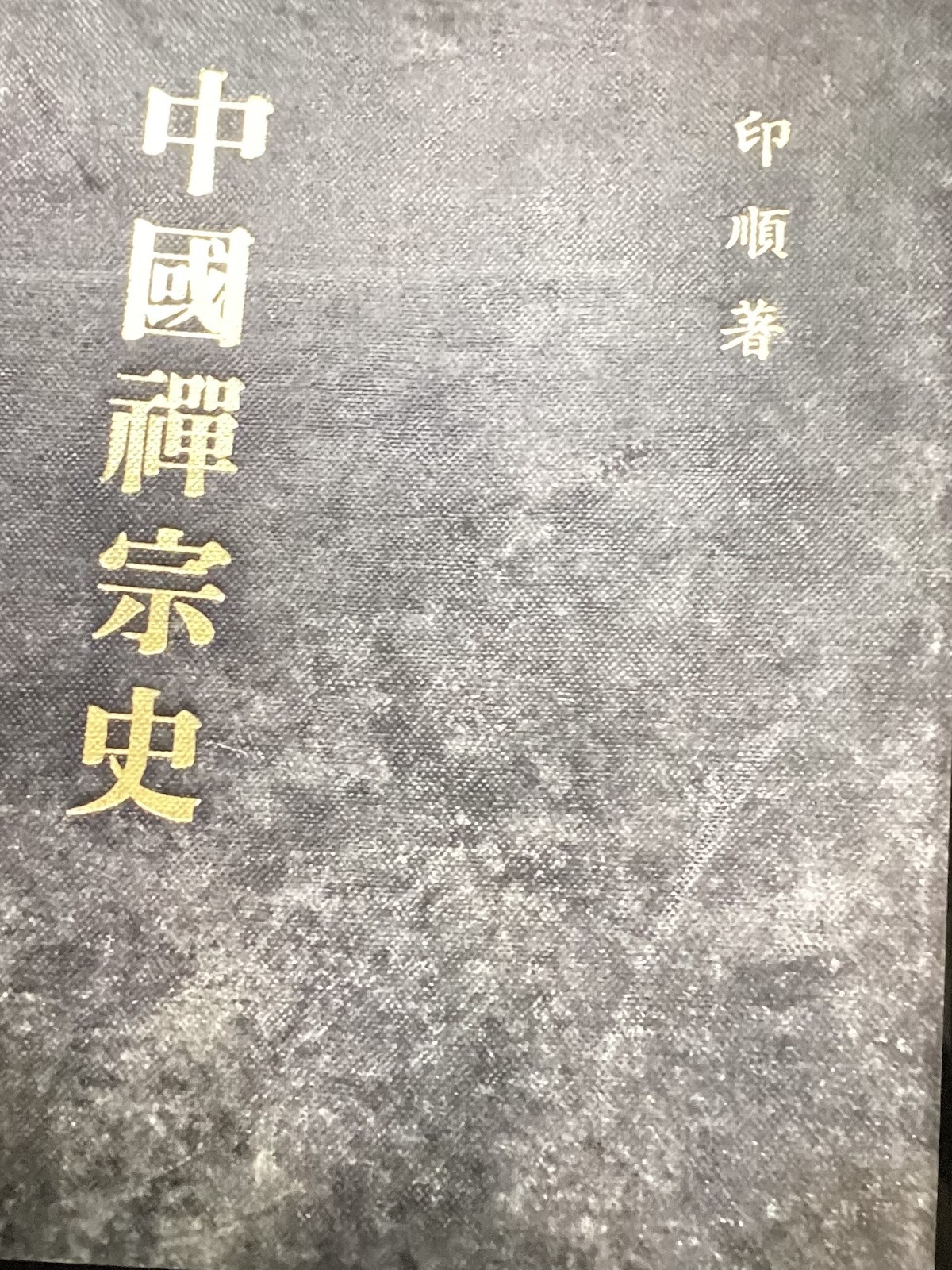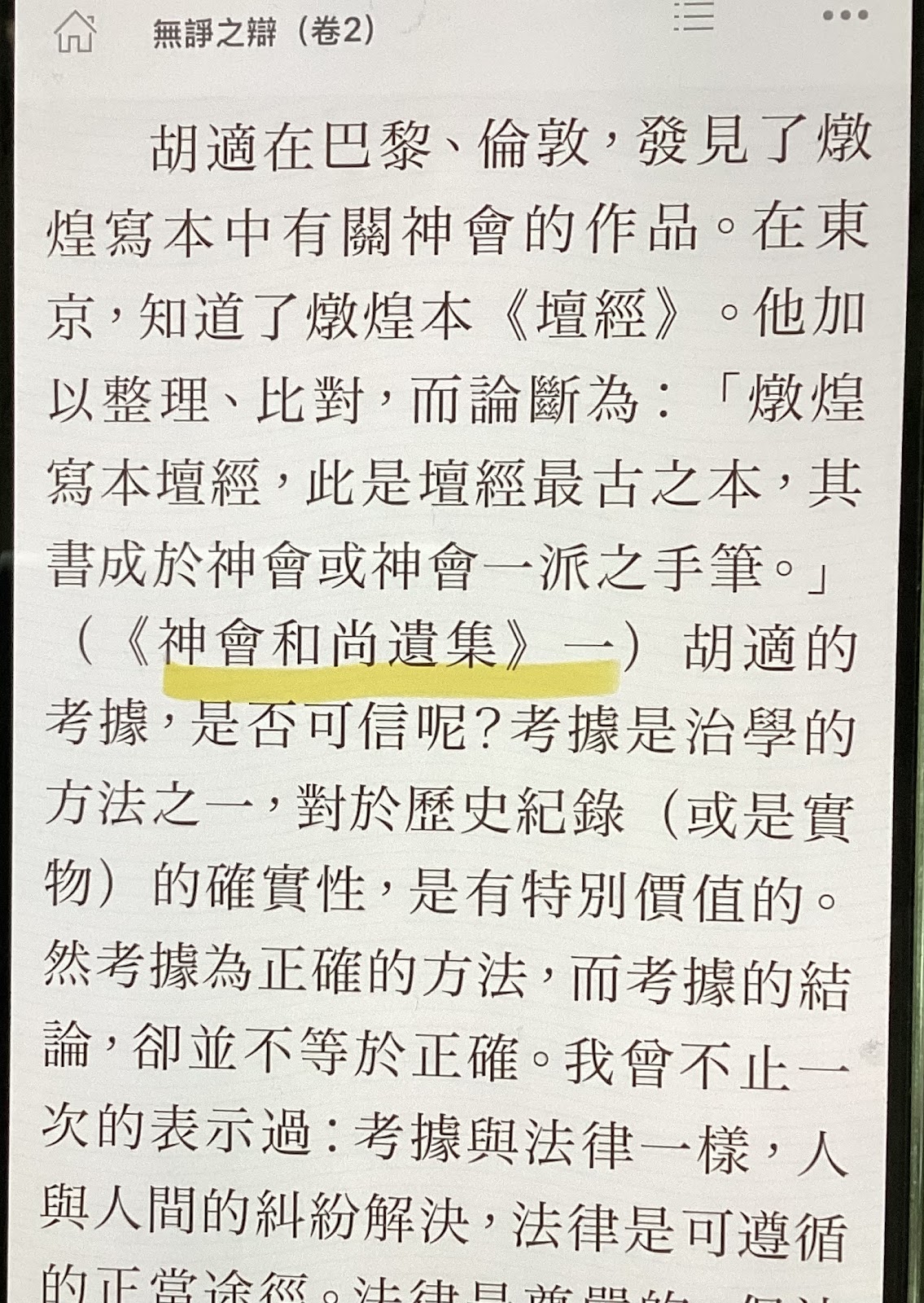說起禪宗我也花了好幾年去研究,個人對於禪宗是又愛又恨!
為什麼?
因為禪師簡潔俐落,但是佛法的根據混亂。
禪宗我最愛引用的是胡適先生的研究,他對《六祖壇經》及其
弟
子神會用考古的學術深入過,我常在講解禪宗的時候,總笑著
說:胡適先生被神會的俠骨柔情吸引(神會-無遮法會),反倒
忽略了神會講的禪法內容可商榷的點還很多。
印順導師《中國禪宗史》的研究也是鉅細靡遺。
近代高僧虛雲,面對參禪時候的奮力拼搏皆不是常人能比的,
但
我後來對這一類的參禪充滿了無限的同情,因為在孤單的参禪
裡面,禪宗的佛法內容所能提供的實在是太少了,還可能方向
是
有問題的!
例如;簡單的参悟『無我』就像拿小鏟子去挖山,路不會挖出
來,但清楚『無我』的佛法思想背景一定輕鬆許多,
我個人總覺得許多禪宗高僧走出來的路,都是靠著他們的宿世修
行經驗累積,而不是用簡單的『禪話頭』走入佛法的世界,也許
参話頭只是幫助他們再入定去接續之前的功力。
(我個人的研究)
無論如何,禪宗大師們在我心裏也是俠骨柔情的,高僧永遠是一
盞大大的明燈。
半寄
Zen
Buddhism
Greetings,
friends of NanZen!
I’ve
spent several years studying Zen Buddhism, and I feel a love-hate relationship
with it.
Why?
Because
Zen masters are concise and sharp in their expressions, yet the doctrinal
foundation of Zen appears chaotic.
One of my favorite references is Hu Shih’s research. He has done in-depth research on The Altar-Sutra of the Sixth Patriarch and the work of Shen-hui, one of Huineng’s disciples, with an archaeological and scholarly lens. When I lecture on Zen, I often joke that Hu Shih was captivated by Shen-hui’s chivalrous and tender personality (Shen-hui- Buddhist gatherings with no limit on number of people or classes). But in doing so, he overlooked many debatable points of Shen-hui’s teachings on Zen practices.
Venerable Yinshun’s Chinese Zen history is another significant work, remarkable for
its detailed and comprehensive research.
Then,
there’s the great modern Zen master, Xuyun (Empty Cloud). His relentless
efforts in meditation are extraordinary, far beyond the reach of most people.
However, I’ve come to feel immense sympathy for such solitary meditative
struggles. The content of Zen Buddhism offers too little practical support in
such situations, and its approach might even have flaws.
For example,
trying to realize the concept of ‘no-self’ (anattā)
through meditation alone is like trying to dig through a mountain with a small
spade --progress is minimal. However, if one
In my
personal view, many great Zen masters achieved their enlightenment not simply
through the ‘Zen’s koans’ or ‘huatou’ alone, but through the
accumulation of past-life spiritual experiences. The huatou might only
serve as a tool to help them re-enter deep meditative states and continue their
previously built foundation. (This is my personal observation.)
Nevertheless,
Zen masters remain figures of chivalry and tenderness in my heart. These great
monks will always be bright guiding stars.
Master Banji




沒有留言:
張貼留言